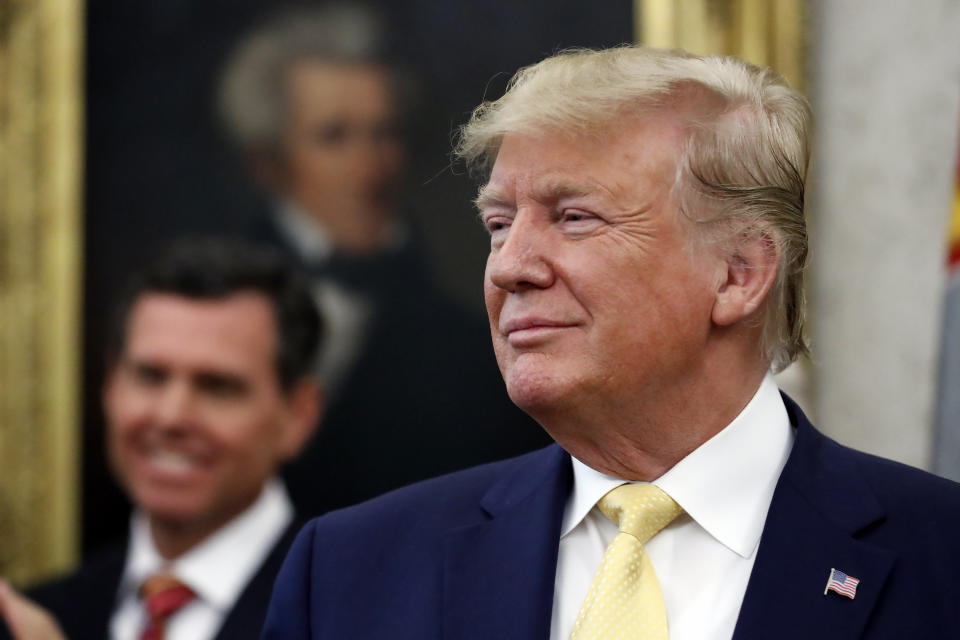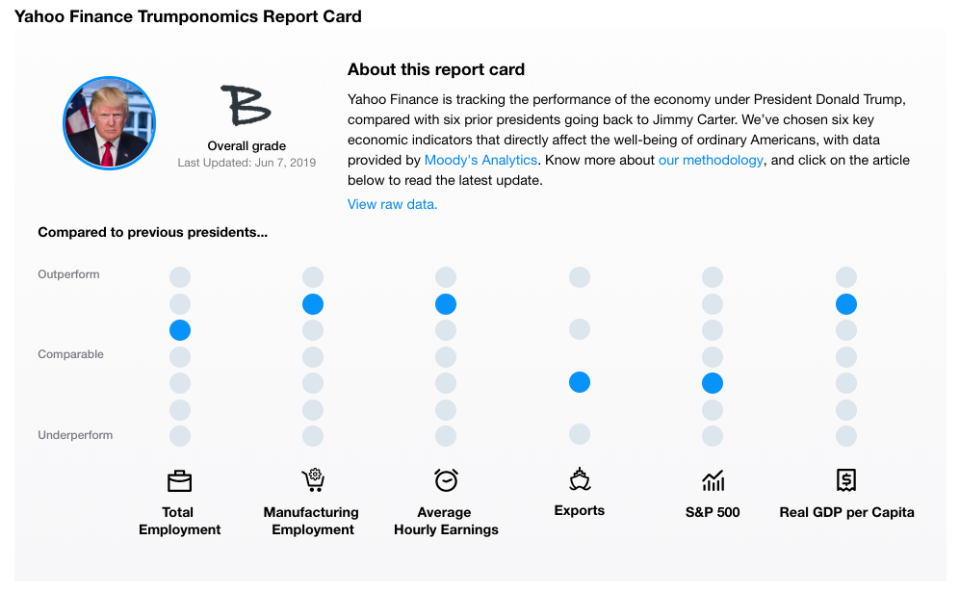Trump should stop bragging about the stock market
What have you done for me lately? That’s what voters want to know when politicians run for reelection. And President Trump’s boasts about stock market gains under his watch are growing very dated.
Trump has bragged more than 60 times about the performance of the stock market since his election in 2016. He posted a celebratory tweet on June 20, when the S&P 500 index closed at a new high. The day before, he bragged, “since Election Day 2016, Stocks up almost 50%.”
Trump’s not wrong. But almost all of the gains in the stock market since his election came in the first 14 months. From Nov. 9, 2016, through Jan. 26, 2018, the S&P 500 index rose 34%. Since then, the S&P has risen just 2.5%. On an annualized basis, stocks have returned just 1.8% during the last 17 months—roughly equal to inflation, for no real gain at all.

Trump calculates stock market gains since his election using the Dow Jones average, which is a much smaller sample than the S&P and generates better numbers for him. Between Election Day 2016 and Jan. 26, 2018, the Dow gained 45%. But since then, the Dow is up by just 2.7%, essentially the same as the S&P. By either measure, stocks have gone sideways for the last year and a half.
Through last November, the performance of the stock market was a winner for Trump on the Yahoo Finance Trumponomics Report Card, where he ranked second on stocks compared with six prior presidents. But Trump has now fallen to fifth, behind Presidents Obama, Clinton, George H.W. Bush and Reagan.

Trump himself is responsible for some of the market’s weak performance during the last 17 months, largely because of his trade wars with China and other countries. The tariffs Trump has imposed take about $9 billion per month out of the economy, according to the New York Federal Reserve. That’s $831 per U.S. household on an annualized basis. There are further costs to U.S. exporters facing retaliatory tariffs from trading partners. Business investment and hiring are slowing as CEOs increasingly worry that trade tensions could trigger a recession.
Stocks rose after the Federal Reserve signaled on June 19 that it might be more willing to cut interest rates. That’s what Trump wants—looser monetary policy that might boost markets. But if the Fed cuts rates, it will be due to worries about a weakening economy, which doesn’t augur a stock-market rally.
Investors seem to expect a breakthrough on trade when Trump meets with President Xi of China during a meeting of global leaders in Japan in late June. But those talks have been at an impasse because China won’t do what the United States wants. It’s unlikely Trump will personally persuade Xi to make those concessions. If there’s no progress, Trump has promised more tariffs that will start to hit consumers directly in the wallet.
Trump may believe he can juice the market himself when needed, by calling off his trade war with China or announcing some new policy investors will love. Perhaps. But the president’s ability to control markets and the economy is overrated. Investors are nervous for good reason, and a 10-year rally in stocks feels tired. If Trump is still bragging about the 2017 stock market a year from now, voters won’t buy it.
Confidential tip line: [email protected]. Encrypted communication available. Click here to get Rick’s stories by email.
Read more:
Markets are still getting the Trump trade war wrong
Meet the 2020 presidential candidates
How China could meddle in the 2020 election
Elizabeth Warren’s best and worst economic ideas
Medicare for all won’t work. This might
Rick Newman is the author of four books, including “Rebounders: How Winners Pivot from Setback to Success.” Follow him on Twitter: @rickjnewman
Read the latest financial and business news from Yahoo Finance

 Yahoo Finance
Yahoo Finance 